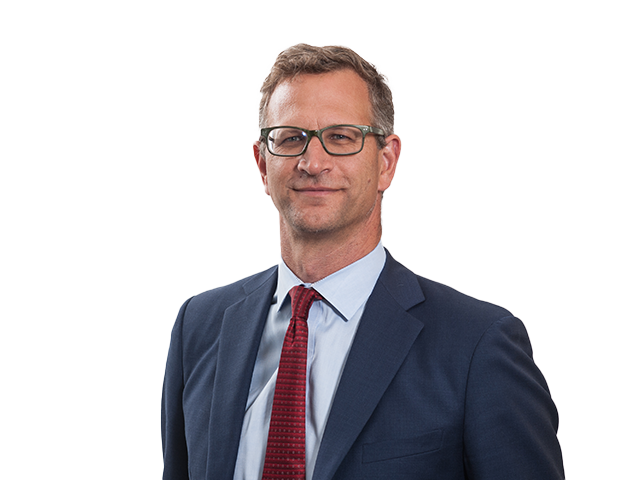Meet John
John Clancy is a Shareholder and the leader of the Energy and Tribal Governments practices.
John provides environmental and energy-related services to a wide variety of entities, including tribal, industrial, commercial, municipal and trade association clients.
John’s energy-related work includes: (1) finance and development of renewable energy and large energy-efficiency projects, including combining tax credit financing, grant funding and other funding sources, for energy users, developers and investors, (2) assistance with tribal energy projects, including strategies to combine federal grants available to tribes with tax credit financing and other financial incentives to cost-effectively develop renewable and other energy projects for tribal governmental buildings, casinos, homes and other facilities, (3) preparation of federal and other grants and funding requests for energy generation and energy-efficiency projects, (4) development of tribal energy utility entities and tribal energy codes, (5) assistance in siting and other approvals for renewable and other energy projects, including Certificates of Public Convenience and Necessity (CPCN) from the Wisconsin Public Service Commission for utility-scale energy projects, (6) environmental and land-use permitting for energy projects, (7) energy transmission and distribution facility right-of-way matters, including representation of affected landowners and of tribes with respect to their sovereign rights under 24 C.F.R. Part 169, including their rights to tax energy facilities and to determine appropriate consent fees for right-of-ways, (8) other land use issues and disputes regarding energy facilities, (9) negotiation of power purchase agreements (PPAs), renewable energy facility leases, co-generation facility agreements, and purchases and sales of energy facilities, (10) certification and transfers of renewable energy credits (RECs), (11) negotiation of individualized energy tariffs and of energy agreements under energy tariffs to lower energy costs, and (12) intervention in regulatory rate and other Public Service Commission cases.
In the environmental arena, John has represented clients with respect to a wide variety of environmental issues, including brownfield redevelopment, mining and mining waste matters, phosphorous credit generation and trading, solid-waste landfill siting issues, and solid and hazardous waste site closure and site remediations, and has provided National Environmental Policy Act, Superfund, RCRA, Clean Water Act, and Clean Air Act counseling and litigation services. John also works with clients to develop and implement strategies to quantify and lower their environmental footprints.
John also represents tribal clients on reservation protection initiatives, including securing and employing tribal regulatory authority under the Clean Water Act and Clean Air Act Treatment-as-State programs, obtaining and enforcing Tribal Class I Air status and rights, and opposition to highly impactful projects, such as sulfide metallic mines. John received the Leader in Law award from the Wisconsin Law Journal for his successful representation of the Forest County Potawatomi Community with respect to their opposition of the proposed Crandon Mine and has assisted the Bad River Tribe of Lake Superior Indians with respect to its mining impact concerns.
Education
Juris Doctor, University of Virginia School of Law, 1990
Bachelor of Arts, University of Wisconsin-Madison, 1986, Phi Beta Kappa
Activities
Urban Ecology Center - Board Member
1000 Friends of Wisconsin - President
Rotary Club of Milwaukee - Member
Wisconsin Industry Solar Energy Association - Board Member
Clean Wisconsin - Board Member
Honors
Honored as one of Wisconsin's Leaders in Law by the Wisconsin Law Journal (2004)
Listed in Best Lawyers in America (Environmental Law, 2010 - present; Litigation - Environmental, 2016-present)
Recognized by Chambers USA (Natural Resources & Environment, 2011 - 2012, 2025)
AV Preeminent® Peer Review Rated by Martindale-Hubbell®
The National Law Review Go-To Thought Leader Award (2021)
Admitted To Practice
Illinois, WisconsinProfessional Associations
American Bar Association
State Bar of Wisconsin
CPCN for Utility-Scale Solar. John represented a large solar developer in successfully obtaining a Certificate of Public Convenience and Necessity (CPCN), which is necessary to construct a 100 MW or larger size energy generation project in Wisconsin.
Crandon Mine project. John represented the Forest County Potawatomi Community in the Tribe’s opposition to the project’s application for mining permits under state and federal laws. The proposal involved one of the most significant zinc and copper underground ore deposits in North America, but it would have been located in a culturally-significant, pristine and wetland-filled area at the headwaters of the wild and scenic Wolf River. The matter was successfully concluded with the Tribe’s innovative buy-out of the applicant’s interest in surface and mineral rights associated with the project. John has been recognized with Wisconsin’s Leaders in Law Award from the Wisconsin Law Journal for his work on this matter.
First Phosphorous Trade in Wisconsin. John represented a cheese manufacturer in obtaining the first Wisconsin Department of Natural Resources approved phosphorus trade, allowing for the cost-effective installation of a new waste water treatment system and effectively using the phosphorus reductions from the conversion of farm fields to prairies to create the phosphorus credits needed to open and operate the new treatment system under Wisconsin’s stringent phosphorus standards.
Governor’s Task Force on Global Warming. John represented a member of and has served on several work groups for the Governor’s Task Force on Global Warming. In this role, he has worked on a number of energy and related policies to reduce greenhouse gas emissions. He also works with a number of clients on sustainability initiatives, including carbon audits and reduction programs, and on strategies to maximize the financial value of these initiatives.
Potawatomi Class I status. John successfully helped represent the Forest County Potawatomi Community with respect to its request for Class I air designation. This was the first tribal Class I air designation since 1992 and allows the Tribe to better protect the air quality over its reservation.
Bio-Digester Development and Construction. John represented an Indian tribe in the construction of a bio-digester on land adjacent to the tribe’s hotel/casino. The bio-digester processes food waste to produce a gas that is burned to fuel a 2 MW generator facility. The successful strategy included obtaining a $2.8 million competitive DOE grant and combining the grant funds with renewable energy tax credits as well as other state and federal funding to significantly lower the cost of the project.
Carbon Footprint Assessment. John represented a federally recognized tribe in a confidential matter to provide an assessment of the tribe’s energy and carbon footprint, generated by human activities at all of its facilities and mobile sources, and then made recommendations for reducing their footprint through a combination of conservation, capital improvements and renewable energy strategies.
Community-Scale and Government Building Solar Installation. John represented an Indian tribe in the construction of a 1 megawatt, community-scale solar project serving over a dozen tribal government buildings on the Tribe’s reservation and on urban tribal trust lands. The successful strategy included obtaining a competitive $1.4 million DOE grant and enlisting investors to combine grant funds with renewable energy tax credits and short term energy cost savings to cover the entire cost of the project. John has also successfully represented several other tribes in obtaining significant federal funds and combining those funds with investment tax credits to install solar serving numerous tribal buildings, in some cases with no capital costs to the tribe.
Community-Scale Solar Facility Installation. John has represented Native American housing authorities to develop and install solar photovoltaic facilities that serve numerous tribal member homes. The successful strategies to implement these projects have included obtaining significant competitive federal grants and working with investors to combine grant funds with renewable energy tax credits and other funds to finance the project costs, resulting in significant utility cost savings for tribal members.
Energy Efficiency and Air Quality Project. John represented a Native American housing authority in a project involving the energy efficient rehabilitation of 96 homes and addressing significant indoor air quality issues. The successful strategy includes obtaining a $600,000 Indian Community Development Block Grant and structuring the project to receive hundreds of thousands of dollars in additional state energy efficiency incentives.
Funding of Energy-Efficient New Housing Project. John successfully worked with a Native American Housing Authority to obtain several million dollars in competitive Housing and Urban Development block grant funding to pay for the vast majority of a new, highly energy-efficient multifamily housing project.
Huron Potawatomi Casino. John successfully represented the Nottawaseppi Huron Band of Potawatomi Indians with respect to their request to place land along I-94 near Battle Creek, Michigan into trust for a new casino. Opposition groups had successfully sued the Bureau of Indian Affairs regarding the environmental assessment performed for the fee-to-trust acquisition. John represented the Tribe with respect to the environmental impact statement that was prepared in response to litigation. Upon completion of the EIS, the opposition group agreed to withdraw all claims with respect to the environmental evaluation.
Emerald Park landfill. John represented the City of Muskego on a contested case hearing opposing one of the largest proposed expansions of a municipal solid waste facility in the State of Wisconsin. At the conclusion of the eighteen-day contested case hearing, the matter was resolved by a negotiated agreement, which substantially reduced the size and impacts of the expansion and awarded the City with the largest fee-per-ton payment for municipal waste at that time in the State of Wisconsin.





